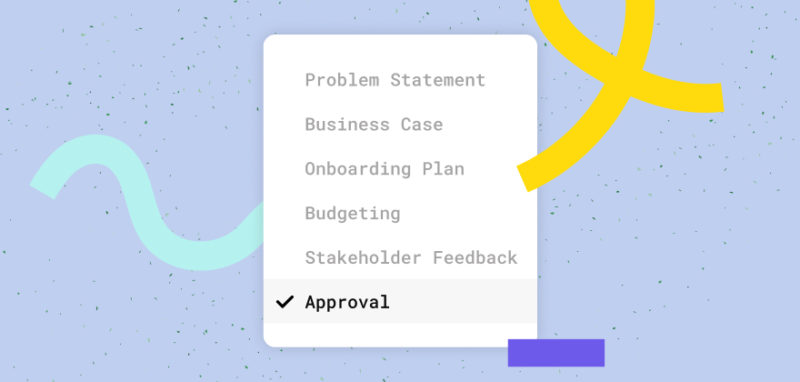
Software Engineer Tech Skills in Demand: Upskilling Support Advice
In the first installment of our 2024 Software Engineer Trends series, we highlighted new data on tech skills in demand. Our findings shed light on what employers seek and which tech skills garner more interview requests.
For further insight into upskilling to market demand and an organization’s needs, we turned to our partner General Assembly.
Denis Sanchez Dujota, an Instructor Lead for GA’s Software Engineering Bootcamp gave his advice to engineering managers, Learning & Development teams, developer individual contributors, and those seeking similar roles.
How can employers support employees to upskill for the changing needs of the business and future-proof their careers as much as possible?There are many avenues for upskilling, each with its distinct advantages. Online courses offer a versatile option, providing flexibility in scheduling and a wide range of topics.
These range from fundamental skills to advanced specialization. They’re often designed in collaboration with leading universities and tech companies. This ensures learners gain access to current and high-demand skills.
Bootcamps offer an intensive learning experience. They focus on practical, job-ready skills over a short period. They’re particularly beneficial for individuals looking to make a swift career transition or upgrade skills in a specific area.
Bootcamps are immersive by nature. They involve hands-on projects and real-world scenarios. This ensures a deep understanding of the subject matter.
Related: Read more about General Assembly’s 4 Immersive Tech Bootcamps and how one student used GA’s Software Engineering Bootcamp to transition from medical coding to a career in software development.
While not as in-depth as bootcamps, workshops and webinars are excellent for interactive learning and networking. They often focus on specific topics or emerging trends.
They offer up-to-date knowledge and the opportunity to engage with experts and peers. These are ideal for anyone looking to supplement existing skills with new insights.
Engaging in hands-on projects, including personal initiatives or contributions to open-source projects, is effective too. This approach allows candidates to apply theoretical knowledge in practical settings.
Employers really value these practical experiences. They demonstrate technical skills as well as problem-solving capabilities and creativity. Real-world projects enhance a candidate’s portfolio, showcasing their ability to deliver tangible results.
What are examples of AI tech skills in demand and how can software engineers learn them?Essential AI skills that can set software engineers apart from their competition include development aspects like machine learning (ML), natural language processing (NLP), and computer vision. Software engineers need to be armed with the skills to use AI tools effectively.
I recommend candidates begin with foundational knowledge in Python programming. It’s used in AI applications, along with statistics and linear algebra basics to understand algorithms.
For those focusing on using AI rather than building it, familiarity with AI software tools, understanding AI ethics, and the ability to interpret AI outputs are crucial. Learning platforms offer specialized courses to cover these aspects.
They focus on how to:
- Integrate AI tools into business processes
- Make data-driven decisions
- Ensure AI use aligns with ethical standards
Hands-on experience with AI is invaluable. Participating in Kaggle competitions or undertaking projects using AI tools sharpens your ability to apply AI in real-world scenarios.
Related: Are you using AI in recruiting? Here are some examples from our podcast Talk Talent to Me.
What should employers dedicate from their budget to upskilling?Employers should divide a specific part of their budget to support upskilling programs. Do so with the understanding that the ideal percentage may fluctuate based on factors such as:
- The organization’s scale
- The sector it operates in
- Its strategic objectives
As a guideline, invest between two and five percent of the payroll into learning and development initiatives. It’s crucial to enhancing employee capabilities, boosting job satisfaction, and fostering a culture of loyalty. It also directly contributes to sustaining the organization’s competitive advantage in this evolving market.
Related: How to Nurture Innovation, Strengthen Retention (Use Professional Development)
What else can employers do to support employees upskilling in areas such as AI?Employers can take several proactive steps:
- Provide tuition reimbursement for courses relevant to AI
- Offer access to online learning platforms
- Organize internal workshops and training sessions
- Foster a culture of continuous learning
As an employer, do you allocate time during work hours for employees to engage in coursework? This helps maintain a healthy work-life balance. It acknowledges and accommodates the time commitment required for upskilling.
Another opportunity? Engaging with the broader tech community through hosting or partnering with AI hackathons.
These events offer hands-on experience with cutting-edge technology and foster networking. Plus, partnerships with educational institutions and tech companies enrich the learning ecosystem.
Why do you think Go and Scala tech skills are most in-demand right now?Demand for Go and Scala stems from their alignment with current software development challenges. Go is prized for its efficiency and simplicity.
These qualities are key when developing scalable web services and cloud applications. Its comprehensive standard library and clear syntax support quick development cycles and deployment.
Scala stands out for its sophisticated blend of functional and object-oriented programming. It’s ideal for crafting complex, large-scale distributed systems.
Scala’s capacity for seamless concurrency management is particularly valuable for applications demanding high levels of throughput and scalability.
Additionally, Scala’s compatibility with Java allows developers to tap into the extensive Java libraries and frameworks. This enriches Scala’s utility in creating robust and adaptable applications.
These attributes position Go and Scala as critical tools to address the demands of modern software development. That includes efficient cloud services, distributed computing, and advanced concurrency management.
Related: How to Hire a Cloud Engineer
Why is supporting upskilling important?

In a recent episode of Hired’s podcast Talk Talent to Me, Archwell Chief Learning Officer Dr. Keith Keating shared his thoughts on the value of learning as a transformational tool.
“The most important skill is knowing how to learn. Any business I know wants employees to be agile, adaptable, resilient, and ready to fill the next organizational gap, whatever it is. We need a workforce with a growth mindset. A team of lifelong learners.”
Other advice from Dr. Keating
- Talent Development and L&D should work closely with Talent Acquisition and Recruiting. Develop a strong relationship with them.
- Measure the performance of employees for the first 90 days after they come out of a university or academic program [like General Assembly’s] we’ve provided for them. Share the data and feedback with TA to give them data on how well their recruits are doing.
- Think long-term. A lot of times people in roles like ours can be incentivized to think short-term, but we collectively need to collaborate on the long-term talent and skills needs of the business and the industry. Think in terms of ‘future literacy.’ It’s not predicting the future, it’s planning for the possible futures.
Interested in sourcing top talent with in-demand tech skills efficiently? See all of Hired’s products and services in action with a demo.
Related blog posts

How Many Candidates Should You Interview for a Job? Hiring Best Practices
A lot of hiring managers ask, “How many candidates should you interview for a job?” What the...

Bold Predictions & Benchmarks: Master Tech Hiring in 2024 (VIDEO)
What do industry experts predict for tech recruitment this year? In this on-demand webinar, you’ll...

Get Internal Approval for Recruiting Tools: A Step-by-Step Playbook
About this eBook Your team has big goals and you’ve identified a new recruiting tool to...

6 Reasons You Think You Don’t Need Hired
Or, Why It Could Be Your Best Recruiting and Hiring Solution We meet a lot of people who...

How to Manage Inbound Applications & Rethink Talent Sourcing Analytics: Tips for Recruiters
Experiencing an overwhelming volume of inbound applications? In a new episode of Talk Talent to...

Raise the Bar in 2023: Strategies from Top Employers Winning Tech Talent (VIDEO)
Need insight to plan your recruiting and hiring strategies for 2023? Watch this on-demand...
